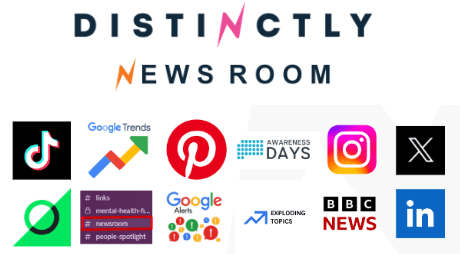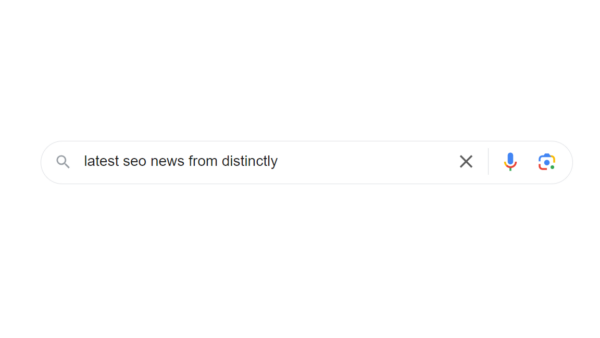How to tailor reactive strategies to suit your industry
Over the past few years, we’ve seen a shift in the Digital PR industry towards reactive PR strategies. Compared to larger-scale campaigns, reactive PR delivers quicker results, requires less preparation time, and allows for greater adaptability. This approach has become an attractive alternative for many clients seeking immediate, flexible and cost-effective PR solutions.
But how can you develop a reactive strategy specifically tailored to clients across different industries?
We’ve put together our top tips for developing an efficient reactive process within your team to produce timely and impressive results across industries from travel to healthcare and law.
How can reactive PR be applicable to various industries?
Travel
Investing in Digital PR is essential for all travel companies, from local agencies to global airlines and hotel chains. A strong online presence is crucial for reaching and engaging today’s digital-first audiences.
In the fast-paced travel industry, timely and reactive responses can make a substantial difference. Whether managing crises or leveraging trending topics, reactive PR enables travel brands to stay relevant and strengthen connections with their audience.
Healthcare
With figures revealing nearly 50 million health-related Google searches were made in the UK in 2023, it’s clear that people turn to search engines for healthcare advice.
As the industry continues to grow, healthcare companies need to ensure a strong online presence to effectively manage their reputation. Reactive PR allows healthcare specialists to react to the abundance of healthcare news, communicate important updates, engage with their audience, and build trust.
From knife crime to divorce, legal issues are highly talked about in the news. Leaders in this industry have the opportunity to gain a position as a go-to source for advice and opinion.
Clients in this space can use their legal expertise to comment on trending news; whether this be a change in the law, a trending topic or a new study. Journalists greatly value legal expertise, as unique insights can add significant depth to their news stories.
Top tips for developing an efficient reactive process:
Create your very own newsroom
Think of the BBC broadcasting office at 7 am on a Monday and create your own ‘newsroom’. Be it in person, via Slack, or on a weekly call, creating a dedicated space for news to be collected, shared and discussed with your team is the most efficient way to enable you to jump on reactive PR opportunities quickly and effectively.
You may find that certain news stories could apply across a range of industries.
An allocated space to share and identify reactive opportunities will also get your team into the habit of regularly checking industry news each morning.
Newsroom shares could include:
- A recent news story
- A new study
- A TikTok, Pinterest or other social media trends
- A spike in Google searches
- The release of a TV show, film or song
- An awareness day, event or public holiday

Stay ahead of the curve and put together an expert comment bank
For those familiar with reactive PR, you’ll know that timing is everything! Journalists have tight deadlines and clients take time to sign things off, meaning there is a lot of liaison involved.
To combat this, producing an expert comment bank with pre-written insights will enable you to stay ahead of the curve. An expert comment bank serves as a vital resource for gathering unique insights on relevant subjects. Developing a comprehensive collection of commentary will enable you to swiftly address recurring news topics by drawing upon previously formulated expert comments.
It’s also worth taking a look at stories associated with your industry that were published in previous years in order to gain insight into what piques journalists’ appetites at this time of year. In a similar vein, you can refer back to previous media requests to see what exactly journalists are looking for around this time.
Create and share regular ‘reactive round-ups’
Create a weekly or bi-weekly roundup with reactive opportunities, news or upcoming events that your clients could respond to in some way.
While an awareness calendar is beneficial to your proactive strategy, some reactive outreach cannot be planned for that far in advance. Therefore, creating a weekly or bi-weekly roundup with reactive opportunities, news or upcoming events from that time period alone ensures reactive opportunities are not missed.
You can tailor these round-ups to specific industries by ensuring you have Google Alerts set up for relevant keywords; meaning you’re keeping abreast of industry news.
Produce an awareness calendar with key industry dates
Despite their abundance, awareness days remain significant. They serve a crucial purpose: giving visibility and voice to diverse groups while spotlighting a wide array of issues and causes.
Whether it’s a public holiday or a niche industry date, each industry will have awareness days that you can utilise in reactive PR.
A well-planned content calendar tracking these important industry dates and events is crucial for developing anticipatory reactive strategies and will enable you to produce content well in advance.
Find out more about our digital PR offering or get in touch today.



